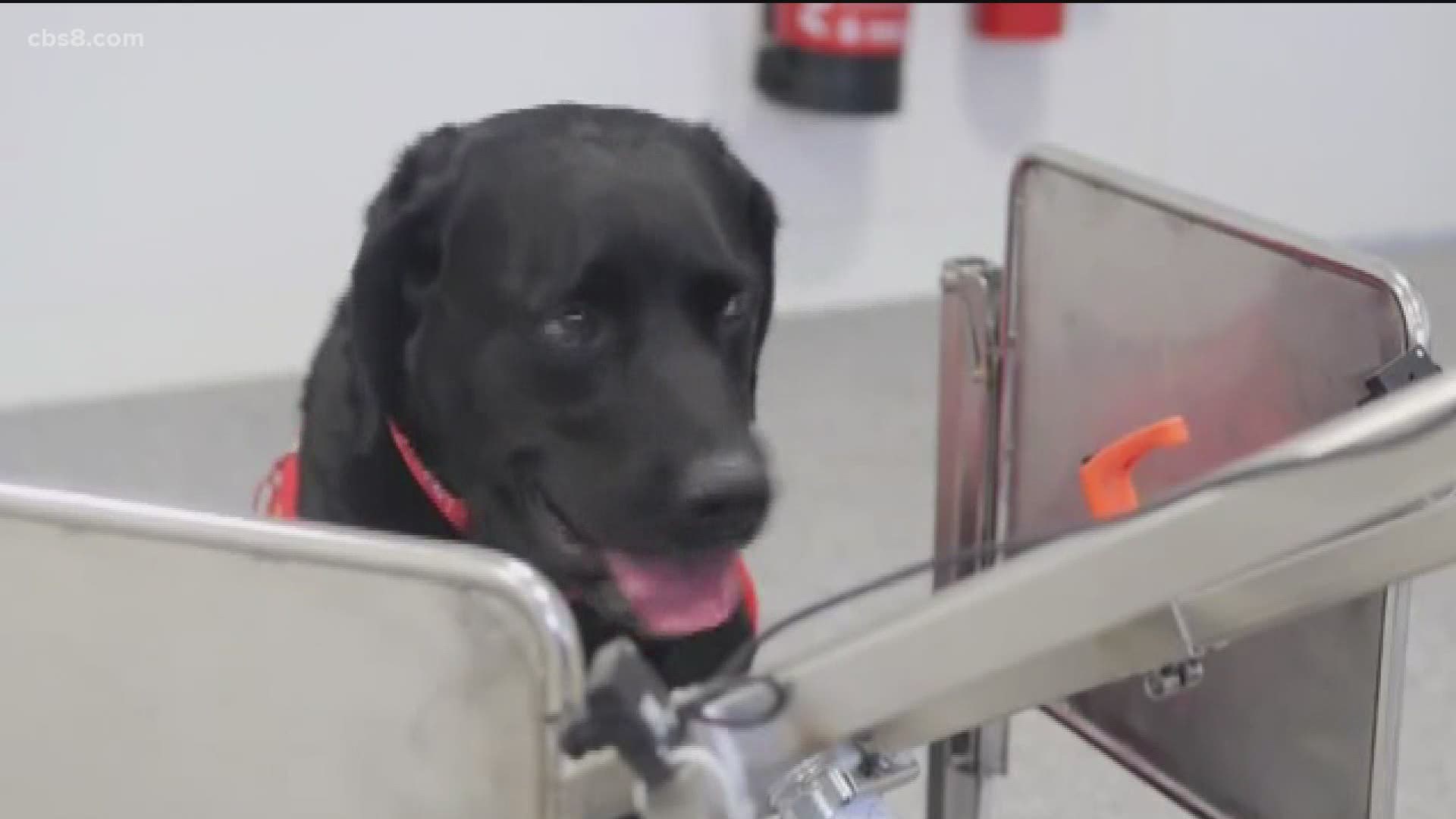SAN DIEGO COUNTY, Calif. — We use man's best friend to detect all kinds of things, including explosives, and narcotics. They can sniff out diabetes, Parkinson's disease, malaria, and cancer.
Now researchers are looking to train dogs to detect if a person has COVID-19.
Currently, there are studies going on in the U.K. as well as the University of Pennsylvania's School of Veterinary Medicine. Researchers said if dogs can be trained to sniff out COVID-19, they could be an extremely valuable tool in preventing the spread of the virus.
"We know dogs have this incredible sense of smell," said Dr. Claire Guest, the Chief Scientific Officer at Medical Detection Dogs.
The U.K.-based charity works with dogs to help detect disease or assist with managing life-threatening medical conditions.
"Dogs don't need someone to have symptoms in order to make a reliable detection," said Dr. Guest. "We know that from malaria they can detect in those first few days when you're carrying the odor and you're not actually developing symptoms."
It is unclear if COVID-19 carries a specific odor. However, because it is a respiratory disease Dr. Guest said molecules coming out of an infected person's breath could be different, and a dog could be trained to find them.
"What we need now is rapid detection," she said. "We need to be able to, in a group of people coming off an aircraft, 400 people, we need to be able to rapidly work out who should be isolated and who should be tested."
The research is still in the early stages.
First, they need to get deactivated samples of the virus so they're not harmful to the dogs or their handlers.
Once that's determined, the training will move quickly.
"Once we know how to present the odor, it will then take between six to eight weeks to teach the dog to find COVID-19 reliably," said Dr. Guest.
She said the potential of this research is huge. Should they successfully train dogs to detect COVID-19 they could then pass that methodology on to other countries.
It could potentially help prevent a re-emergence of the virus once the current epidemic is under control.
Dr. Guest said they work with a lot of rescues.
She said spaniels and labradors work well as scent detection dogs because they have a great sense of smell, are high energy, and love to be around people.



